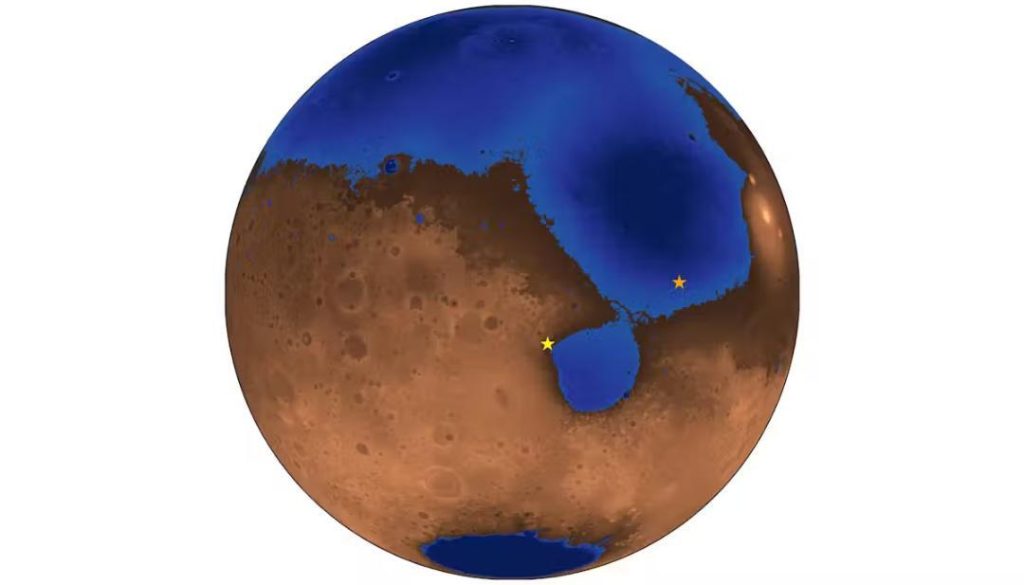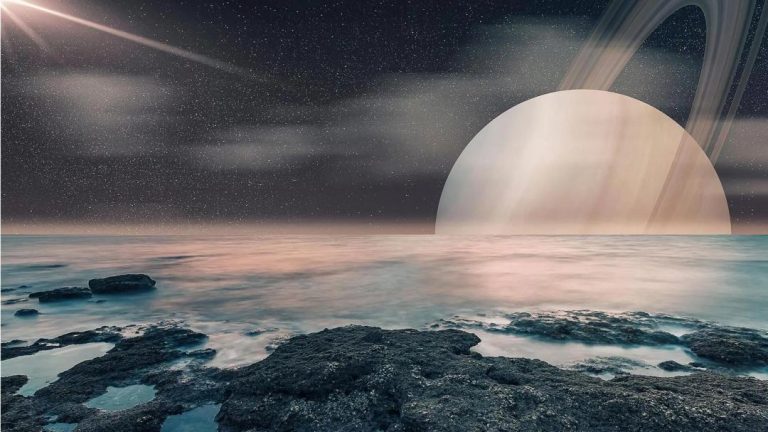
Mars had an ocean, sandy beaches 3 billion years ago: Study
The possibility of life on Mars has long fascinated humans, and recent discoveries are shedding new light on the Red Planet’s past. A recent study using data from China’s Mars rover Zhurong has uncovered evidence that an ocean once covered parts of Mars’ northern hemisphere around 3 billion years ago. The study, published in the journal PNAS, reveals that scientists have identified beach deposits from the long-lost Martian ocean.
The discovery was made possible by the Zhurong rover’s ground-penetrating radar, which scanned 100 meters beneath the surface of Mars. The radar technology allowed researchers to penetrate the Martian soil and gather data on the planet’s subsurface. The findings suggest that Mars was once a very different place, with a vast ocean covering a significant portion of its surface.
The ocean, which is believed to have existed around 3 billion years ago, is thought to have played a crucial role in shaping the planet’s geology and potentially supporting life. The discovery of beach deposits is significant, as it provides evidence of a stable and long-lasting ocean on Mars. The beach deposits, which are typically formed through the erosion of rocks and sediments, are a key indicator of a planet’s past climate and oceanic activity.
The study’s findings are based on data collected by the Zhurong rover, which was launched by China in July 2020. The rover landed on Mars in May 2021 and has been exploring the planet’s surface ever since. The rover is equipped with a range of instruments, including cameras, spectrometers, and radar, which are designed to study the planet’s geology, atmosphere, and potential biosignatures.
The discovery of the ocean and beach deposits on Mars is significant not only because it provides evidence of a past aquatic environment but also because it sheds new light on the planet’s potential for supporting life. The existence of an ocean on Mars suggests that the planet may have had the necessary conditions to support life, including liquid water and a stable climate.
The study’s lead author, Dr. Li Meien, a researcher at the Chinese Academy of Sciences, stated that the discovery of the ocean and beach deposits is a major breakthrough in the study of Mars. “This discovery is significant because it provides evidence of a long-lasting ocean on Mars, which is a key factor in determining the planet’s potential for supporting life,” Dr. Li said.
The discovery also raises questions about the fate of the Martian ocean. Was it drained by geological processes or did it simply evaporate due to changes in the planet’s climate? The study’s findings suggest that the ocean may have played a crucial role in shaping the planet’s geology, potentially creating the conditions for life to emerge.
The discovery of the ocean and beach deposits on Mars is also significant because it provides a new perspective on the planet’s past and its potential for supporting life. The study’s findings suggest that Mars may have had a more hospitable climate in the past, which could have supported life. The discovery also raises questions about the possibility of life existing on Mars today, either in the form of microorganisms or more complex life forms.
In conclusion, the study’s findings provide significant new insights into Mars’ past and its potential for supporting life. The discovery of an ocean and beach deposits on Mars suggests that the planet may have had the necessary conditions to support life, including liquid water and a stable climate. The study’s findings also raise questions about the fate of the Martian ocean and the possibility of life existing on Mars today.






